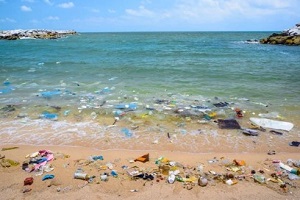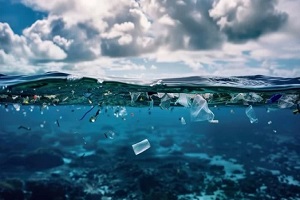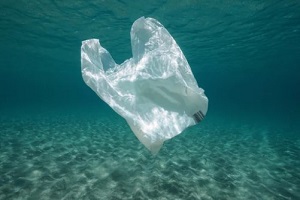July 29, 2024

According to UNESCO, about 8-10 million metric tons of plastic ends up in the ocean each year, accounting for around 80% of total marine pollution. These plastics take 500-1,000 years to degrade, but they may not entirely disintegrate even then.
Instead, they may break down into smaller pieces called microplastics, which eventually enter the food chain. Relevant authorities and plastic chain supply companies have been working together to develop new ways of managing plastic waste.
This blog reviews what’s working, what’s not working, and the new way the disparity between the two is being addressed.
The circular plastic economy, in which non-biodegradable plastics rarely end up as waste, has been cited as a solution to plastic pollution with many end users participating in the effort. However, this approach has a major limitation: it doesn’t pay much attention to the 50-75 trillion pieces of plastic and microplastics that are already in the ocean.
LyondellBasell, a leading plastics manufacturer and supplier based in the Netherlands, recently teamed up with a German original equipment manufacturer (OEM) and a specialized plastic recycling company to address the growing problem of maritime plastic pollution.
This collaboration will break new ground by converting ocean plastic waste into valuable products.
Traditionally, maritime plastic waste has had limited recycling options due to the high level of contamination from saltwater, biomass, marine organisms, and other pollutants.
Its most prevalent use case has been in the automotive industry, where it was recycled into fibers for new vehicle components. But thanks to the groundbreaking technology announced in December 2023, it is now possible to use recycled ocean scrap for a variety of new plastic products.
Using the new technology, maritime plastic waste which is primarily end-of-life fishing nets, is collected, cleaned, sorted by type, and processed into polypropylene compounds. The polypropylene compounds are combined with virgin compounds for further reprocessing into CirculenRecover PPC TRC 2179N recyclate.

CirculenRecover PPC TRC 2179N contains up to 30% recycled content that is entirely derived from post-consumer waste (PoC), making it sustainable.
According to Regulation (EC) No 1272/2008, CirculenRecover PPC TRC 2179N is classified as not a hazardous substance or mixture. It contains no components deemed either bioaccumulative, persistent, and toxic (PBT) or very bioaccumulative (vPvB) and very persistent at concentrations equal to or exceeding 0.1%.
The recyclate has properties similar to those of virgin plastics. It is a 15% talc-filled PP copolymer with outstanding impact/stiffness balance, high flowability, high UV resistance, and exceptional scratch resistance. It is suitable for various applications in the plastic industry, as discussed below.
Join our PLASTICS Pulse newsletter today to receive updates on within the plastic industry while staying informed & connected.
The advanced technology allows for a substantial reduction of mineral filler content, which contributes to the reduction of the final part weight. This makes CirculenRecover PPC TRC 2179N a sustainable and practical choice for applications where a balance of performance and efficiency is essential. It is available in C12A83 customized color-matched and pellet form.
The CirculenRecover PPC TRC 2179N is injection molded into various plastic products. LyondellBasell announced that the recyclate will be used in the automotive industry for large-scale production of interior trims. This will enhance plastic sustainability and environmental stewardship in the automotive sector.
The recyclate is also known for other applications, such as:
CirculenRecover PPC TRC 2179N is currently used to manufacture plastic products through extrusion, injection molding, and other conversion processes. Currently, the automotive sector is the main beneficiary of this groundbreaking technology; however, plastic companies now plan to expand the industrial applications of CirculenRecover PPC TRC 2179N and integrate it into high-volume consumer markets.

Of note, the recyclate is prohibited from being used for the following:
The Plastics Industry Association helps organizations involved in the production and supply of plastics compete globally through education, networking, thought leadership, and advocacy. The organization holds regular seminars where insights, innovative solutions, industry challenges, and regulations are discussed. Join the Plastics Industry Association today.
PLASTICS and the Future Leaders in Plastics (FLiP) Committee are devoted to supporting and encouraging the next generation of plastics leaders who will play a crucial role in the innovation, technology and future of the plastics industry. FLiP’s mission is to provide young professionals under the age of 40 the exposure, education and resources they need to build lifelong careers in plastics. Want to join? Want to get your employees involved? Email: [email protected]